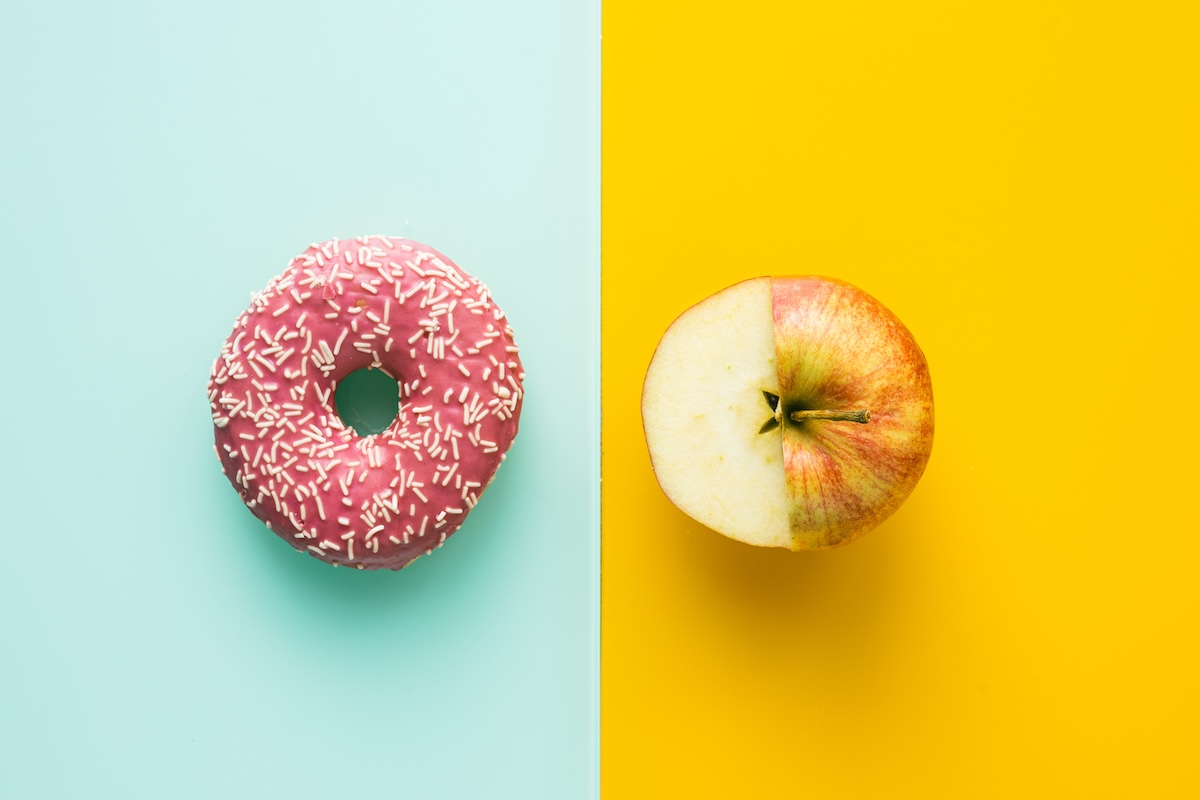Swapping a large side of fries for a salad or an ice cream cone for a banana sounds simple enough, right? Wrong! There’s so much more that goes into our decision-making around meals and snacks. Oversimplifying dietary changes as just a matter of willpower can be discouraging.

What is Diet–Mental Health Relationship (DMHR)?
This is where the emerging field of nutritional psychology comes in—specifically the diet–mental health relationship (DMHR). The DMHR is the two-way connection between dietary intake and psychological, behavioral, cognitive, interoceptive, sensory-perceptual, and psychosocial processes.
Let’s break that down into bite-sized pieces:
The DMHR is “bidirectional”, meaning diet affects mental health and mental health affects diet.
Here are the six elements of the DMHR:
- Psychological – the link between dietary intake and moods, emotions, and overall affect.
- Behavioral – the link between food choices and actions/reactions.
- Cognitive – the link between diet and memory, learning, decision-making, and focus.
- Interoceptive – the link between diet and bodily sensations such as fullness or fatigue.
- Sensory-perceptual – the link between food and our senses (taste, smell, sight, touch, sound).
- Psychosocial – the role of peers, family, culture, community, and socioeconomic factors in shaping dietary habits.

Example in Action
Meet Caren (a not-so-subtle nod to Unified Care).
Caren has had a tough week: endless deadlines, a mountain of chores, and a sick dog. She’s been relying on ready-to-eat processed foods, which has left her feeling more tired, stressed, and sad—the psychological element at play.
By Friday, she turns to comfort food and makes homemade macaroni and cheese—the cognitive element.
She can imagine the savory taste of the gooey cheese as she smells the aroma of browning breadcrumbs and her mouth starts watering—the sensory-perceptual element.
Eating brings a temporary mood boost, so she serves herself two plates instead of one—the behavioral element.
Soon, she feels uncomfortably full, exhausted, and struggles to focus on her favorite TV show—the interoceptive element.
Finally, she reflects: “I really should be eating more vegetables…”—the psychosocial element.
At this turning point, Caren could either get down on herself and repeat the cycle, or she could choose to make a change. But with all these DMHR factors at work, sticking with change can feel overwhelming.
Making Change Stick
This is where tools like SMART goals, habit stacking (linking a new habit to an existing one), mindful eating, and food-and-feelings diaries can help.
Remember: making dietary changes isn’t about willpower alone—and you don’t have to do it alone. Your Unified Care team is here to support you every step of the way.



